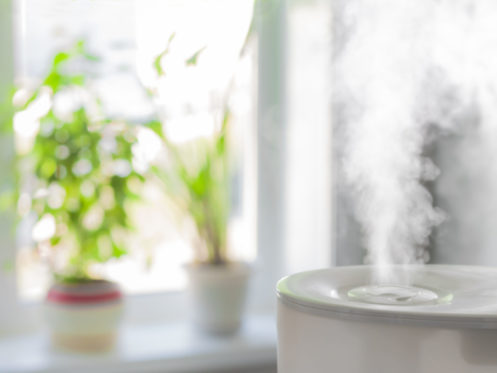Indoor air quality is becoming an increasingly important issue as more and more people spend a significant amount of time indoors. Poor air quality can cause a range of health problems, from allergies and respiratory issues to headaches and fatigue. Two devices that can help improve indoor air quality are air purifiers and dehumidifiers. However, with so many different models and types of devices on the market, deciding which is right for you can be challenging. In this blog, we’ll explore the differences between air purifiers and dehumidifiers, their benefits, and when each one is most useful.
Air Purifiers: How They Work and Their Benefits
Air purifiers are designed to remove pollutants and allergens from the air, such as dust, pet dander, mold spores, and pollen. They work by drawing in air through a filter and trapping particles, which are collected in a filter or destroyed through various technologies such as UV light or ionization. By removing these particles, air purifiers can help alleviate allergy symptoms, reduce the spread of airborne diseases, and eliminate unpleasant odors.
There are several types of air purifiers, including HEPA filters, activated carbon filters, and UV-C light filters. HEPA filters are the most common type used in portable air purifiers but are not commonly used in residential HVAC systems. They are designed to capture 99.97% of airborne particles as small as 0.3 microns. Activated carbon filters are used to remove odors and chemicals from the air whereas UV-C light filters are designed to kill germs and bacteria.
Dehumidifiers: Reducing Excess Moisture and Preventing Mold Growth
Dehumidifiers, on the other hand, are designed to reduce excess moisture in the air that can lead to the growth of mold and mildew. These devices draw in humid air and pass it over a cooled coil. This process causes the moisture to condense and collect in a reservoir. By reducing the amount of moisture in the air, dehumidifiers can help prevent the growth of mold and mildew, which can cause respiratory problems, allergies, and other health issues.
Dehumidifiers are particularly useful in areas with high humidity levels, such as basements and bathrooms, as well as during humid seasons like the summer. They can also help prevent damage to furniture, clothing, and other household items caused by excess moisture.
Air Purifier or Dehumidifier: Identifying Your Needs
To determine whether an air purifier or dehumidifier is right for you, you’ll need to consider your specific needs and the issues you’re facing in your environment. If you or anyone in your household suffers from allergies or respiratory problems, an air purifier may be the best choice for you. A dehumidifier may be more appropriate if you live in an area with high humidity levels or during the humid season.
However, it’s worth noting that both devices may be necessary in some cases to improve air quality and alleviate humidity-related issues in your environment. For example, if you live in a humid climate and suffer from allergies, an air purifier can help remove allergens from the air, and a dehumidifier can reduce humidity levels and prevent the growth of mold and mildew.
Factors to Consider When Choosing Between an Air Purifier and Dehumidifier
Several factors should be considered when deciding between an air purifier and a dehumidifier. These include:
- The size of the room: The size of the room will determine the size and capacity of the device needed.
- The type of pollutants present: If you’re dealing with a specific type of pollutant, such as smoke or chemicals, you may need an air purifier with a specific type of filter, such as an activated carbon filter.
- The severity of the problem: If you’re dealing with severe allergies or respiratory problems, you may need a higher-capacity air purifier or a combination of both an air purifier and dehumidifier.
- The cost: Air purifiers and dehumidifiers can range in price, so it’s important to consider your budget when making a decision.
- The maintenance requirements: Both devices require regular maintenance, such as filter replacements and cleaning, so it’s important to consider the ongoing costs and time required for upkeep.
Air purifiers and dehumidifiers are two devices that can help improve indoor air quality by removing pollutants and excess moisture from the air. Understanding the differences between these devices, their benefits, and when each is most useful can help you decide which device is right for you. Whether you’re dealing with allergies, respiratory problems, high humidity, or simply want to breathe cleaner air, an air purifier, a dehumidifier, or both can provide the solution you need for a healthier, more comfortable living environment.
At Variable Comfort Solutions, we can help you decide the best option for your home. We offer a complete range of heating and cooling services in addition to indoor air quality solutions. If you’re in the Huntington, WV area, call us today for all your home comfort needs.


